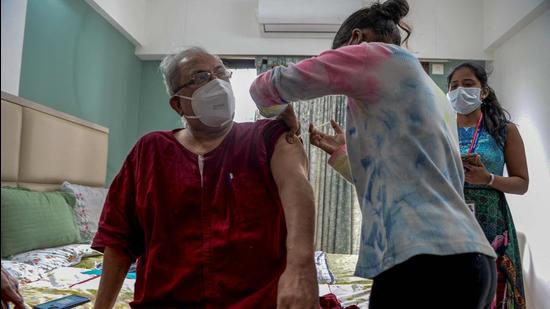Covid-19: Covaxin submits documents for emergency use authorisation in Canada
If it is approved, it will be an important outcome for thousands of Indians, who have been inoculated by the jab but have to face entry restrictions currently as it is not in the approved list yet.
While the manufacturers of the Covid-19 vaccine Covaxin have completed their submission to Canadian health authorities for emergency use, they have also stressed that the jab is the only one to have shown efficacy against the Delta variant in a controlled clinical trial.

Covaxin has been developed and manufactured in India by Bharat Biotech, which entered into an agreement with the American firm Ocugen for the North American market, and the latter established a presence in Canada through Vaccigen to facilitate the review process with Health Canada.
Vaccigen applied for emergency use authorisation (EUA) on June 30 and started submission of data and documentation on July 15, a process that was completed on July 20. In a tweet on July 30, Health Canada and the Public Health Agency of Canada confirmed the review was “under way”.
Ken Inchausti, head, investor relations & communications of Pennsylvania-based Ocugen, told the Hindustan Times that while it was not possible to apply a “specific timeline to Health Canada’s review”, they believed that the “Phase 3 data submitted provide a compelling case for the efficacy and safety of Covaxin”.
With Canadian health authorities warning of the portents of a potential fourth wave in the country sparked by the Delta variant, he underscored the relevance of Covaxin in this context. In response to emailed queries, Inchausti said, “With the rapid spread of Covid-19, including its Delta variant, it is clear that additional vaccine options have the potential to help reverse this negative trend. Currently, there are no head-to-head studies between Covaxin and other Covid-19 vaccines. Covaxin is the only investigational Covid-19 vaccine to demonstrate, in a controlled clinical trial, efficacy against the Delta variant. (efficacy rate: 65.2%).”
Ocugen’s Canadian affiliate, the Alberta-headquartered Vaccigen is facilitating regulatory activity in the country. Unlike the USA, where the Food and Drug Administration asked Ocugen to apply for full authorisation, Health Canada has allowed EUA application.
While Covaxin also waits clearance from the World Health Organization, if it is approved in Canada, it will be an important outcome for thousands of Indian citizens, students, temporary workers and new residents, who have been inoculated by the jab but have to face entry restrictions currently as it is not in the approved list yet.
Among the vaccines available in India at this time, only Covishield, the version of Astra Zeneca manufactured by the Serum Institute of India, has been granted EUA in Canada.
While Canada has announced it has secured enough vaccines to fully jab its entire eligible population, Inchausti said Covaxin attacked several targets on the actual virus while others only targeted the spike protein. “We believe this has value as we see the virus continue to mutate into new variants through changes in the spike protein,” he said.



